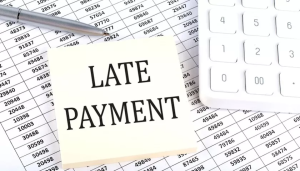From 6 April 2025, HMRC interest rate changes 2025 introduced higher interest rates on overdue tax payments. These changes follow announcements made in the Autumn Budget 2024 and are part of a larger plan to reduce tax debts and boost compliance.
Let’s break down what’s changing, who it affects, and how you can prepare.

New Interest Rate Formula
At the moment, HMRC charges interest on late tax based on the Bank of England (BoE) base rate plus 2.5%. But from 6 April 2025, this will increase to the BoE base rate plus 4%.
For example, if the BoE base rate stays at 3.5%, the new interest on overdue tax will jump from 7% to 8.5%. The next BoE review is on 8 May 2025, which could bring further changes.
Specific Changes by Tax Category
 1. Corporation Tax (Quarterly Instalment Payments)
1. Corporation Tax (Quarterly Instalment Payments)
The interest on late QIPs will rise from BoE base rate + 1% to BoE base rate + 2.5%.
2. Customs Duty
The late payment interest will increase from BoE base rate + 2% to BoE base rate + 3.5%.
3. Repayment Interest
There is no change here. For most paid-up taxes and duties, the repayment interest will remain at 3.5% (as of 2 April 2025).
Why HMRC Is Making These Changes
HMRC stated that these hikes are part of a long-term plan to reduce tax arrears. According to the Spring Statement on 26 March 2025, late payment penalties will also become tougher.
Here’s what to expect:
-
VAT late payment charges will be higher starting April 2025.
-
New MTD penalties for Income Tax will apply once a taxpayer joins the Making Tax Digital system.
-
Businesses with unpaid VAT could face 8.5% interest and daily penalties up to 10% annually.

HMRC Interest Rate Changes 2025
How to Prepare
These new rules may affect your business or personal finances. To stay ahead:
-
Review your tax payment plans now.
-
Set reminders for key tax deadlines.
-
Consider a time-to-pay arrangement if you’re unable to meet your tax obligations.
Acting early helps you avoid high interest and penalties later.
The HMRC interest rate changes in 2025 will affect many UK taxpayers. While the goal is to reduce tax debt, the cost for late payments is rising. If you owe tax or expect delays, now is the time to act. Plan ahead, get support if needed, and stay compliant to avoid extra charges.
FAQs: HMRC Interest Rate Changes 2025
1. What is the new HMRC interest rate from April 2025?
From 6 April 2025, HMRC will charge interest on overdue tax at the Bank of England (BoE) base rate plus 4%. If the BoE rate remains at 3.5%, the interest rate will be 8.5%.
2. Why is HMRC increasing interest on late tax payments?
HMRC is raising interest rates to reduce tax arrears and encourage timely payments. This is part of a wider tax compliance strategy outlined in the Autumn Budget 2024 and Spring Statement 2025.
3. Does the new rate affect all taxes?
Most tax types are affected, but changes vary. For example:
-
Corporation Tax QIPs interest will rise from BoE + 1% to BoE + 2.5%
-
Customs Duty late payments will go from BoE + 2% to BoE + 3.5%
-
Repayment interest (on overpaid tax) remains at 3.5%
4. Will penalties also increase in 2025?
Yes. From April 2025, HMRC will:
-
Introduce higher late payment penalties for VAT
-
Enforce new Making Tax Digital (MTD) penalty rules for Income Tax
-
Charge daily penalties of up to 10% annually for unpaid VAT
5. How can I avoid HMRC penalties and interest charges?
To avoid extra charges:
-
Pay your taxes on time
-
Set up a time-to-pay arrangement if you’re struggling
-
Stay informed on tax deadlines and interest updates
6. When is the next Bank of England base rate review?
The next BoE base rate review is scheduled for 8 May 2025. Any change to the base rate may impact HMRC’s interest rates.
7. Does this affect individuals as well as businesses?
Yes. Both individuals and businesses with overdue tax payments will be affected by the new interest rate. It’s important to plan ahead and stay compliant.
click here for more

